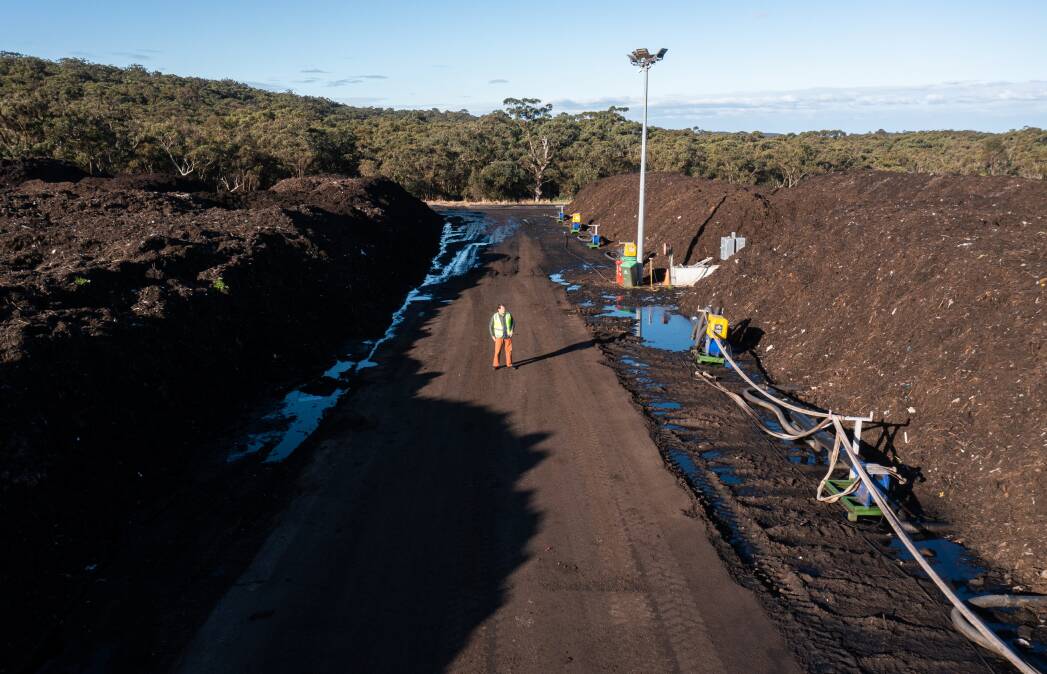A WHOPPING 200,000 tonnes of food and garden waste has been diverted from landfill in Lake Macquarie in the past five years.
That's the equivalent of the weight of 700 Airbus A380s, or almost four Sydney Harbour bridges.
The three-bin system was introduced in July 2018, and since then locals have helped salvage tonnes of food and garden organics, Lake Macquarie City Council waste services manager Paul Collins said.
"That has yielded about 94,000 tonnes of compost, returning vital nutrients to the soil, but equally importantly, it has reduced greenhouse gas emissions by 312,000 tonnes," he said.
"Diverting this waste from landfill is also helping us move closer to meeting the NSW Environmental Protection Authority's waste diversion targets.
He said such large amounts of organic waste created a lot of methane if sent to landfill rather than being composted.

Food and garden waste collected at homes in the city are sent to Awaba to be processed into compost.
The diversion from landfill also reduces the amount the council has to pay in state government waste levies.
In the past five years, it has saved the council about $28.3 million.
The council's waste strategy coordinator Hal Dobbins said that while some residents found the switch to three bins challenging initially, most had embraced the green bin.
"Every little scrap of food and garden waste we collect in the green bin counts," he said.
An audit of bins across the city showed food scraps still make up about 17 per cent of waste that goes into the garbage bin.
Mr Dobbins said that meant more than 6000 tonnes of food waste still ended up in landfill each year.
Lake Macquarie mayor Kay Fraser said overall, residents were doing an amazing job.
"I'm really proud of the way they have risen to the challenge, changed their habits to accommodate the three-bin system and helped us become some of the best food and green waste recyclers in Australia," she said.
Except for hard shells from some seafood, all food scraps can go in the green bin, including leftover cooked food, grains, fruit and vegetable scraps, dairy products and egg shells, coffee grinds and tea leaves and meat, bones and poultry.







